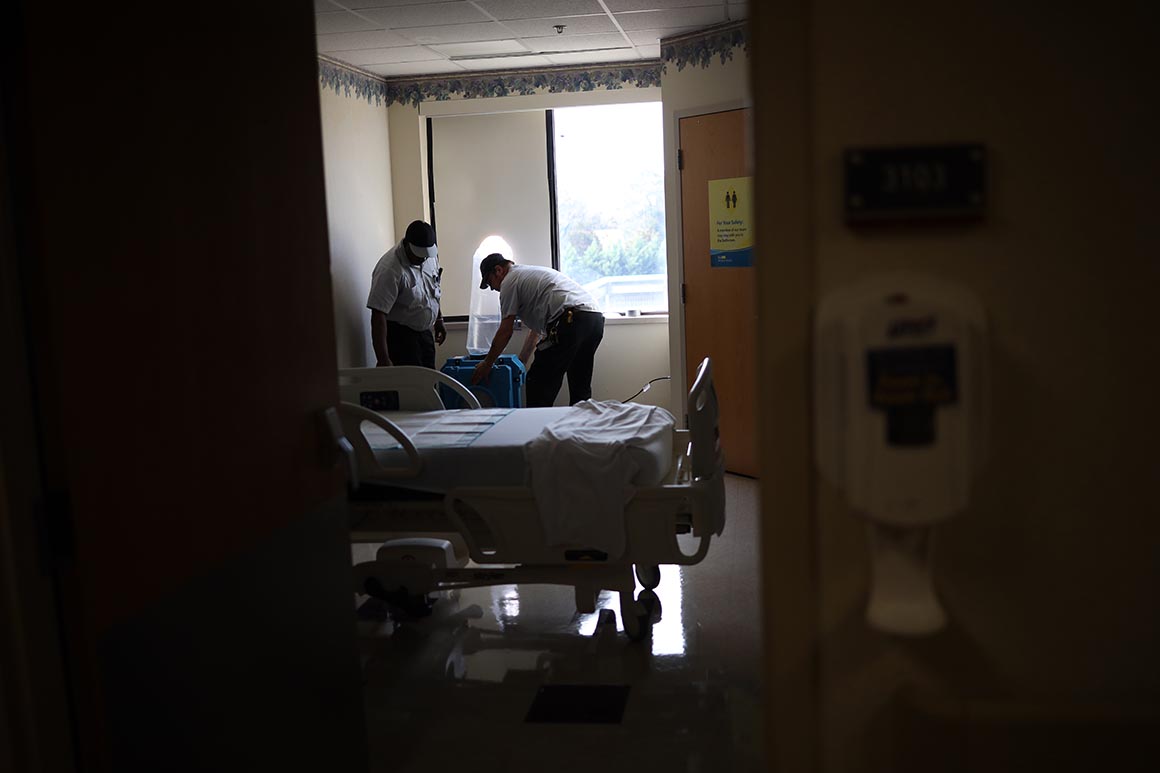
Essential gear protecting providers is woefully inadequate and could remain so in some areas for weeks, despite assurances from federal officials that more specialized masks and surgical gowns are on their way. And because of a widespread lack of testing, frontline workers said they are treating patients without knowing if they’re infected — and that the coronavirus could spread not just to doctors and nurses, but security and cleaning staff as well. Several American health workers have already died after contracting the virus.
In a suburb of Washington, D.C., one major health system isn’t sending sick staff home, even when their symptoms indicate a possible coronavirus infection, according to a nurse who said she took vacation time to self-quarantine after getting symptoms, including a low-grade fever. She’s still waiting for test results she had to drive to another Virginia county to get.
In hard-hit New York City, a critical care nurse reported that a sick hospital clinician has exposed a long-term patient to the coronavirus. POLITICO is withholding the names of most facilities in this story on the request of workers who feared retribution for speaking out.
The outbreak in Italy could hold important lessons for the worst that could come to America. Physicians handling the brunt of that country’s outbreak, to reduce transmission in hospitals, are encouraging mobile clinics and even moving ventilators into patients’ homes.
„We are learning that hospitals might be the main COVID-19 carriers, as they are rapidly populated by infected patients, facilitating transmission to uninfected patient,“ Italian doctors wrote in the New England Journal of Medicine recently.
In Washington state, an early epicenter of the country’s outbreak, the virus had been “blossoming” undetected in some hospitals for weeks, according to a physician with CHI Franciscan’s network of hospitals there. Early in the outbreak, one patient with an unrecognizable cough had already infected some frontline staff by the time the person’s Covid-19 test came back positive, the physician said.
And this wasn’t an isolated case. The physician reported that over the weekend clinicians — unprotected at the time due to the protective mask shortage — came into contact with patients whose tests came back positive.
“I don’t think the problems are any different in our system than elsewhere. It’s just that we haven’t gotten the surge completely yet,“ said the physician, who credited the health system for shutting down elective surgeries over 10 days ago, before there was mounting pressure on hospitals to do so.
A spokesperson for the hospital system said all staff members are being screened before entering a facility and health care workers who are „coughing, have a fever, or feel ill“ are asked to stay home.
“These are not normal times, and we are doing everything we can to keep our staff and patients safe, while also conserving masks under the latest local CDC guidelines,“ said Carly Evans, the spokesperson. Evans said the system’s hospitals are sharing resources and “working very hard to find more resources as soon as possible.“
In Connecticut, a nurse at a community hospital said her facility is giving providers just one specialized mask to treat coronavirus patients; they put a face shield in front of the mask to protect it and reuse both. Those who aren’t treating coronavirus patients or suspected cases don’t use the masks, but there’s still fear that the infection could spread.
“Am I going to bring this home to my kids? Am I going to bring this home to my husband?” said the nurse, whose spouse is a first responder.
Many hospitals are urging patients who aren’t very sick to stay at home, and some are conducting tests in isolation tents or screening patients in their cars. The Trump administration has urged hospitals to postpone nonessential elective procedures, such as cataract surgery and colonoscopies. There’s been resistance among some hospitals which depend on the lucrative procedures, though, and some health workers expressed concern to POLITICO that those could further spread the virus throughout hospitals.
Source: politico.com
See more here: news365.stream






